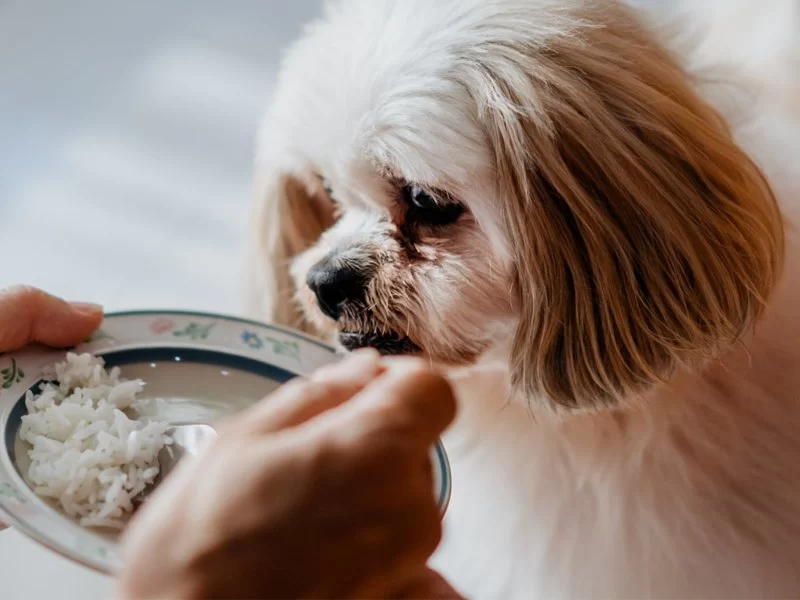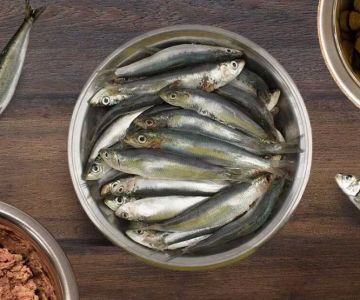- can-dogs-eat-rice-safely - Can Dogs Eat Rice Safely?
- nutritional-benefits-of-rice-for-dogs - Nutritional Benefits of Rice for Dogs
- white-rice-vs-brown-rice-in-dog-diets - White Rice vs Brown Rice in Dog Diets
- when-rice-is-recommended-by-veterinarians - When Rice Is Recommended by Veterinarians
- how-to-feed-rice-to-dogs-safely - How to Feed Rice to Dogs Safely
- real-owner-stories-dogs-and-rice - Real Owner Stories: Dogs and Rice
- when-not-to-feed-your-dog-rice - When Not to Feed Your Dog Rice
- consulting-hidden-brook-veterinary-for-diet-advice - Consulting Hidden Brook Veterinary for Diet Advice
1. Can Dogs Eat Rice Safely?
Yes, dogs can eat rice safely, and in fact, rice is commonly recommended by veterinarians as a bland diet component for dogs with digestive issues. However, the key is feeding the right type, in the right amount, and under appropriate conditions. While rice is not toxic to dogs, there are nutritional nuances that dog owners need to understand. Just because a food is safe doesn’t mean it’s ideal for every dog or suitable in all situations.
In the U.S., many commercial dog foods already include rice—usually white rice—for its digestibility and energy content. But the real question pet owners often have is: "Is rice actually good for my dog?" That’s where context matters. Whether you’re nursing a dog with an upset stomach or simply trying to diversify your pup’s menu, understanding how dogs respond to rice is crucial for making informed feeding decisions.
2. Nutritional Benefits of Rice for Dogs
Rice is a carbohydrate-rich grain that provides dogs with a quick source of energy. It’s low in fat, easy to digest, and contains essential nutrients like magnesium, manganese, and vitamin B6. For dogs that struggle to maintain energy or have digestive sensitivity, rice can act as a gentle fuel source that doesn’t overburden the stomach or pancreas.
In moderation, rice contributes to gut health by acting as a binding agent, which can help dogs with loose stools. Additionally, its hypoallergenic nature means rice is less likely to trigger allergic reactions compared to more protein-heavy grains or processed fillers. Brown rice also contains higher fiber content, which may be helpful for dogs needing digestive support.
3. White Rice vs Brown Rice in Dog Diets
One of the most common questions dog owners face is whether white or brown rice is better. White rice is more processed—its husk, bran, and germ are removed—which makes it easier to digest but also strips away some nutrients. Brown rice, on the other hand, retains these elements and offers more fiber, antioxidants, and minerals.
Veterinarians often recommend white rice during short-term recovery because it is bland and less likely to irritate the stomach. Brown rice is more suitable for long-term feeding plans or dogs with stable digestive systems. The trade-off is between digestibility and nutrient density, and which is better depends on the dog’s health, age, and overall diet composition.
4. When Rice Is Recommended by Veterinarians
Rice is frequently prescribed as part of a temporary bland diet when dogs experience gastrointestinal upset such as vomiting, diarrhea, or post-surgical recovery. In these scenarios, vets often suggest a mixture of boiled chicken and plain white rice for a few days, allowing the stomach to rest while still providing essential calories.
Additionally, for dogs with chronic pancreatitis or food allergies, rice can serve as a carbohydrate base in home-cooked diets. It’s important to remember that any therapeutic use of rice should be guided by veterinary advice, especially if your dog is on medication or a specific nutritional plan.
5. How to Feed Rice to Dogs Safely
To safely feed rice to dogs, it must be cooked thoroughly and served plain—no butter, oil, salt, garlic, or onion. Seasonings commonly used in human meals can be harmful or even toxic to dogs. The rice should be cooled before serving, and mixed with protein like boiled chicken or turkey if part of a recovery diet.
In terms of quantity, rice should never exceed 10-15% of your dog’s total daily calorie intake unless prescribed otherwise. Overfeeding rice can lead to weight gain or imbalanced nutrition. For small breeds, start with 1–2 tablespoons per meal. Large dogs may tolerate 1/2 to 1 cup depending on their size and health condition.
6. Real Owner Stories: Dogs and Rice
When Max, a 7-year-old Labrador from Ohio, suffered from pancreatitis, his vet at Hidden Brook Veterinary recommended a diet of white rice and lean ground turkey. Within three days, Max’s vomiting ceased, and he regained his appetite. The temporary rice-based diet was gradually replaced by prescription kibble, but his recovery highlighted the rice’s effectiveness as a transition food.
Another case involves Bella, a beagle with a sensitive stomach, who regularly has rice mixed into her food to help prevent flare-ups. Her owner notes that when other grains were tried, Bella showed signs of discomfort and bloating, but rice consistently supported her digestion.
7. When Not to Feed Your Dog Rice
Despite its benefits, rice isn't suitable for every dog. Diabetic dogs may not tolerate white rice well due to its high glycemic index, which can spike blood sugar levels. Dogs with severe allergies or specific grain sensitivities should avoid rice altogether, even the hypoallergenic varieties.
Additionally, feeding rice daily without balancing other nutrients can lead to deficiencies. Dogs need protein, fats, vitamins, and minerals that rice alone cannot supply. Long-term home-cooked diets that include rice should be formulated with the guidance of a veterinary nutritionist.
8. Consulting Hidden Brook Veterinary for Diet Advice
If you’re unsure about adding rice to your dog’s diet, consulting professionals like those at Hidden Brook Veterinary is a smart first step. They offer individualized plans based on your dog’s breed, age, weight, and health status. From managing chronic digestive issues to crafting post-operative nutrition strategies, their team can help determine if rice is the right addition to your pet’s bowl.
Whether you’re a first-time dog owner or managing a senior dog’s evolving diet, expert input ensures your feeding choices are safe and effective. Hidden Brook Veterinary can also recommend top-quality supplements or prescription foods if rice alone doesn’t meet your dog’s needs.











